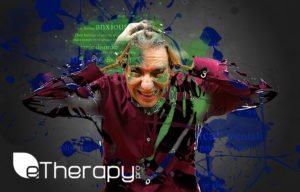
Life is stressful and when that stress is prolonged it can take a toll on your health. There are many symptoms of anxiety, and many of those could easily be mistaken for something else. The physical symptoms of anxiety can mimic those of life-threatening heart disease.
We have all heard the warnings about chest pains and shortness of breath. These are some of the common first signs of a heart attack. You have to act quickly, take an aspirin, and get to the hospital to save your life. Even the numbness and tingling in your arm are present, yet at the hospital, the tests come back negative. These symptoms are frightening and the test results are frustrating. You may feel as if you are dying, yet the medical professionals tell you that your heart is just fine. It’s tempting to think they are wrong, and missing something. If you have the means, you might seek a second opinion.
If you are experiencing those physical symptoms and your doctor finds nothing wrong with you, it could be that you are suffering from anxiety. All the years of working too hard and too long for too little reward have caught up with you. Your mind and body have had enough. You can’t keep stuffing all that worry down. Lying awake at night worrying has worn you down even further. Continuing to force yourself through the hell of each day has taken its toll. Your body is calling for a time-out.
When we are faced with a threat, our bodies naturally go into fight, flight, or freeze mode. This is our biological, adrenaline-driven response to danger. It serves us well in many situations. When this response kicks in blood flow is directed towards your arms and legs (think running and fighting) and the area of your brain responsible for making quick decisions. It gives you the boost you need to quickly assess a situation and either get out of there, play dead, or take on that monster. It’s meant to be a short-term, immediate response to get you out of danger, not a method for coping with life’s ongoing, daily stressful challenges.
Rarely is running away a great solution to our modern problems. You can’t run from the bill collector. Freezing up when your boss calls on you in a meeting is not helpful. Neither is punching the rude guy who cuts in line in front of you at the DMV. All that adrenaline without a monster to fight is not helpful and creates new problems. The constant stream of unused adrenaline causes your heart to race, and your palms to sweat. Your thoughts are quick and scattered. Restful sleep is pretty much impossible.
If a person stays in this state of flight, flight, or freeze for an extended period it can lead to an anxiety disorder. If it is triggered too often, or in inappropriate circumstances, this can also lead to an anxiety disorder.
Some people with anxiety experience symptoms that are more of an emotional nature. They may feel an extreme fear that is not based on a true threat. They may be paralyzed by this fear and unable to move past it, even when they logically understand that the fear is not rational. These fears may have begun as normal and rational and then over time grew out of control.
An example of an irrational fear could be a fear of driving. Driving certainly can be dangerous. Accidents and even death are not uncommon. We hear of fatal car accidents on the news and see these images frequently. It’s a fact – people can die while driving a car. For most of us that knowledge leads us to take certain precautions, like wearing our seatbelts, making sure our kids are in appropriate car seats, obeying traffic laws, and driving defensively. We understand the risk, but we still venture out every day taking our kids to school, and driving to work.
Someone with an anxiety disorder who is fearful of driving may be so focused on all the potential danger involved in getting behind the wheel that they just can’t do it. Their minds are so focused on avoiding an accident that they are unable to focus on the task of driving. Every small movement causes them to overreact, slamming on the brakes, turning the wheel too far, etc. Often they limit themselves to short routes, close to home where they are more familiar, avoid heavy traffic areas, night driving, etc. In extreme instances, they may become so fearful that they stop driving altogether and even refuse to ride as a passenger.
A common symptom of anxiety disorders is excessive worry. This happens when the mind will not shut off after an appropriate amount of time trying to work out a problem. It gets stuck in a loop that never resolves in a solution. Often this means playing a conversation from the past, real or imagined, over and over in your mind. Each time the scene is played the intensity of the emotions involved strengthens, and the worry increases. What did they mean by that? Did I say the right thing? Should I have said this instead? Why did I say that? They must hate me. I’m so stupid. I have ruined everything.
There are coping methods to help a person stop these endless worry loops. Help is available. It is not hopeless. If you suspect you are suffering from an anxiety disorder, reach out to a mental health professional.
When a person’s thoughts are full of fear and worry, it’s easy to withdraw socially. Dealing with the added unpredictable input from others can be just too much to handle for someone already stressed to near their breaking point. Social settings are full of the unknown and for someone struggling to control their thoughts, they can be very difficult. Effectively dealing with the emotions of others is also difficult for a person whose own emotions are already at a heightened level. In many cases, the individual determines that it is easier if they just stay at home, and avoid social settings as much as possible. This can be very detrimental, making it hard to keep a job and relationships intact.
A person suffering from anxiety needs support from family and friends. A common reaction to anxiety is to withdraw from other people. Unfortunately, when a person withdraws socially to avoid more stressful situations, they distance themselves from the support they really need. With professional help, they can be gently guided back into beneficial social settings that will support their efforts to find happiness and overcome their anxiety. Without professional help, the lack of social connections can intensify the anxiety, and increase their chances of developing clinical depression.








